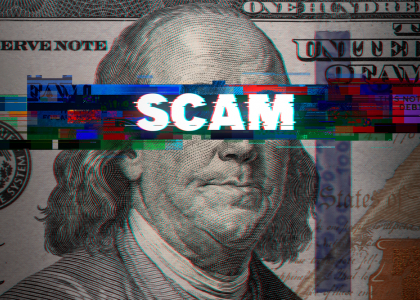In this article we will tell you what company shares are and what role they play. The information will be useful to anyone interested in securities, investing and the operation of the stock market.
Today, stocks are the second largest financial asset market after bonds. Due to greater volatility and less predictability, as well as more complex pricing mechanics and greater potential profitability, stocks are more “media” and “exciting” than “boring” bonds.
What are company shares
Company shares are shares of ownership of companies. That is, when you buy shares of Tesla or Microsoft, you become a co-owner of Tesla along with Elon Musk and a co-owner of Microsoft with Bill Gates. Even within a limited liability company, there are shares; accordingly, the owners of the LLC are shareholders, or in other words, shareholders. However, in the public space, stocks usually mean shares that are traded on an exchange, and shares that are not traded on an exchange are not so popular. This is explained by the fact that access to them is limited and they are dealt with by a separate area of finance called Private Equity. In this article, we will indirectly discuss this part of the stock market.
First promotions in the Netherlands
To understand more precisely, what the company's shares give , we need to go back to the basics. Shares have existed in various forms since Roman times, but the first company to be listed on the stock exchange was the Dutch East India Company. Unlike rivals Spain and England, who in their colonial companies relied on more centralized management and financing (and, accordingly, profits were concentrated in the hands of the crown), the Netherlands took the path of accumulating capital through private individuals to conduct colonial expansion.
Before the arrival of the East India Company in the Netherlands, the stock market was already popular due to investments in shares of the cargo on ships that traded in Asia. If without the stock market a trader could invest in the cargo of 1 ship and risk all his capital if the ship did not fulfill its task, then with the stock market a trader could invest 10% in 10 ships and “spread his risk” over 10 ships. Thus, if 1 out of 10 ships sank on the way, the merchant still did not lose all his capital and still had profit from 9 other ships. Diversification has been a relevant concept for the financial market since the beginning of its existence.
Later, this scheme was scaled up to the entire East India Company, where instead of 10 ships there were hundreds — this approach allowed any citizen to participate in a very profitable trade. At the same time, the East India Company actively collaborated with the Dutch crown and was the first state corporation with publicly traded shares (the British East India Company did not have publicly traded shares and was a state corporation). The East India Company, through the capitalization of public funds, became the largest in history.
At its peak in 1637, the East India Company had a market capitalization (share value times number of shares) of $7.90 trillion, adjusted for inflation. That's more than any publicly traded company in modern times.
Although the company was later destroyed by the Napoleonic Wars, the colonies that passed from the company to the control of the Dutch crown remained part of the Netherlands until the end of the first half of the twentieth century and seceded as part of the pan-European trend of decolonization.
The Boom and Bust of Railway Shares in England
As part of the previous story, many may have heard of a textbook example of financial bubbles in the form of the tulip financial bubble in the Netherlands. In fact, from a practical standpoint, the tulip bubble had very limited effect on the overall market beyond a few bankrupt traders who had not diversified or had run up debt. The story of the Tulip Crisis is a story of speculators buying an asset with little to no practical use that they didn't need in the first place, in the hope that they could sell it for more and for the status that comes with trading that asset.
Let's look at why company shares are needed using a more interesting example — railway companies in England. The first half of the 19th century saw the dawn of industrialization in England. Publicly traded shares of railway companies appeared. Laying railroad tracks and transporting goods (coal, steel, parts) between businesses was a very profitable business. The lack of analysis, regulation, and the lax attitude of the regulator and investors led to the fact that many railway companies turned out to be fly-by-night companies without real opportunities to fulfill their declared essence, but with a relatively high capitalization due to the high expected profitability of the sector. Examples of similar behavior can be observed today.
Read also: What is a scam and how can an investor protect himself from it?
Venture investments
Professional institutions for investing in high-risk assets at early stages are venture funds. As a separate institution, the venture fund is relatively young and crystallized only in the twentieth century. Before this, only the richest people could engage in what is now called venture investing.
Today, venture funds can exist in a form close to mutual funds, that is, relatively accessible to the general public on the one hand and a team of professionals who work for the success of the fund, on the other.
Proper venture funds are initially structured in such a way that a “drop” in the value of an asset does not threaten the existence of the fund and will not be too sensitive for the fund’s investors.
It is venture funds, by their structure, that can and do invest in all sorts of advanced technologies, be it fintech, biotech or foodtech.
Why do you need company shares: current realities
A company's stock is an instrument with a clear application. At a basic level, issuing shares is a method of attracting investors and their capital. At this stage, let us remember that shares are not only exchange-traded, and in some cases it is through shares that co-owners structure their relationships in relation to the company, its assets and its profits. Note that an alternative to raising capital through shares is to raise capital through credit funds. Credit funds are a safer and cheaper method in terms of corporate finance management. At the same time, attracting other co-owners can be beneficial for the company as a whole due to the fact that the new co-owner has certain connections and know-how that are important for the success of the company. Often the above-described venture funds act as such a co-owner.
Why, then, might it be profitable for owners to sell their shares, much less in the public market?
To understand what company shares provide, it is important to remember: the key benefit for company owners is the increased liquidity of their capital and the undeniable valuation of their capital. This is possible through the emergence of a secondary market.
Read also: Market volatility: what an investor should know
Position Liquidation Factor and Secondary Market Explanations
Let's look at why companies need shares through the prism of the benefits of public offerings for company owners:
- For venture capital funds, placing shares in companies in which they are co-owners is the main method of making a profit. Having become a co-owner of a young company with modest capitalization, a venture capital fund ceases to be its co-owner at the stage when it is a large company with shares traded on an exchange. Accordingly, the profit of a venture fund is the difference between a block of shares purchased at an early stage of the company's existence and the same block of shares after a public offering of the company's shares at a later stage. At the same time, venture capital firms are often those most interested in organizing a public offering.
- Having a market price allows owners to more firmly value their capital. The owner of shares in Plus and Minus LLC may believe that his shares are worth a trillion dollars, but the bank may not agree with him, demanding more solid assets to secure a mortgage on a box near the entrance to the subway. And, for example, Elon Musk will be given any loan against Tesla shares without any questions asked, and even on preferential lending terms. This different approach is explained by the fact that the capitalization of Plus and Minus LLC is fictional, but Tesla shares are in free circulation.
- 3. Related to the previous but particularly important factor in the secondary market is urgency. You might miss the initial public offering or be the founder of a company you like, but if that company has publicly traded shares, you can become a co-owner by buying out shares from another co-owner. Accordingly, you have the opportunity to quickly enter/exit from being a co-owner of the company. This approach allows you personally to manage your finances more flexibly and participate in the development of certain companies in the most convenient way for you.
FC Daliz-Finance LLC has the ability to both purchase military bonds on the secondary market and has experience in purchasing military bonds through primary dealers. In the first months of the war, our clients bought war bonds worth more than 500 million hryvnia. Join their number /em>by leaving a request on our website.
Frequently Asked Questions: why do companies need shares
What does buying company shares give you
A company share makes you a co-owner of the company and gives you the right to claim assets, profits, and decisions made within your share of ownership of the company.
What determines the price of a company's shares
At a basic level, the price of shares depends on how much the owner of a share of the company is willing to sell his share for and how much a buyer who wants to own a share of the company is willing to buy it for. At the stage when the company's shares are not publicly traded, the estimated value of the company and shares is one of the key negotiation processes. At the same time, after going public, the price of a company’s shares is formed by the collective unconscious called the “market”/





